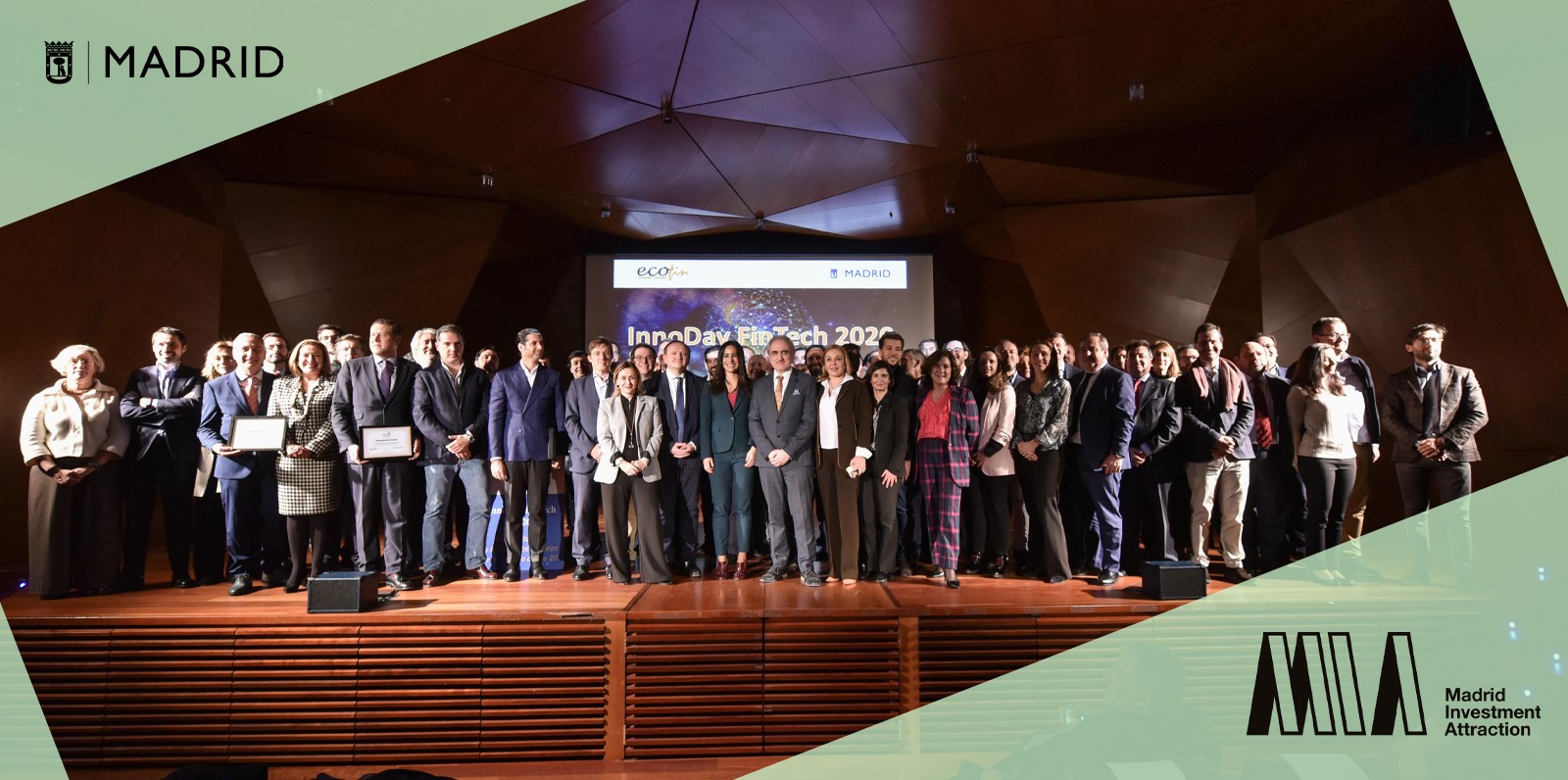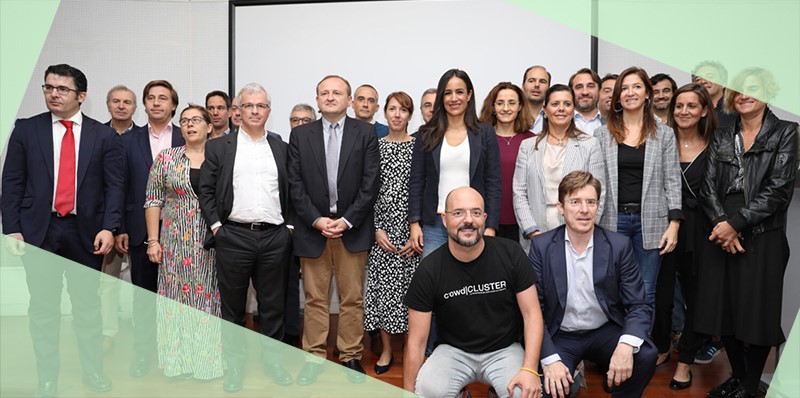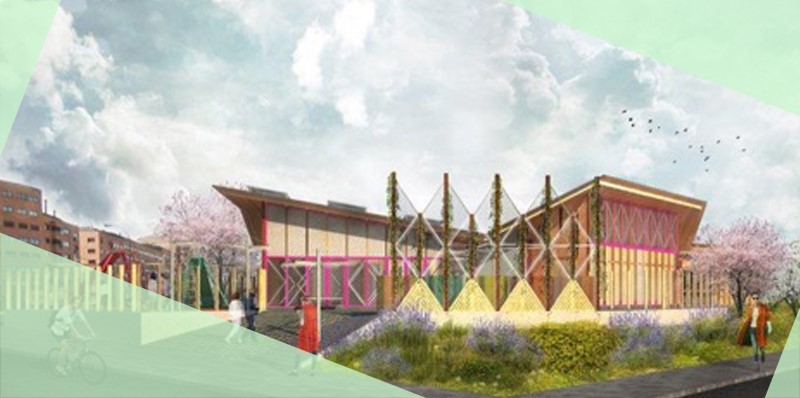
The Madrid City Council has promoted, through the Department of Economy, Innovation and Employment, the creation of five business clusters in strategic sectors linked to the new economy and in which the city is considered to have the capacity to attract companies, investments and talent. These clusters are in the fields of Cybersecurity; Fintech and Insurtech (technologies linked to finance and insurance); Big Data and Artificial Intelligence; Construction, Engineering and Infrastructure; and Circular Economy, the latter still in its initial phase.
Clusters are groups of companies, universities and other educational and research centres and public institutions and administrative bodies that have the objective of promoting the economic development of a certain sector. It is a concept that was introduced in the late 80s in the United States by the economist Michael Porter, who analyzed the advantages of a regulatory framework that respects competition and collaboration between businesses and institutions in a given area or economic sector.
With these clusters, the City Council seeks to attract talent and investments and provide an environment conducive to dialogue between its members that leads to synergies and more fluid relationships.
From the point of view of the company, the cluster has the advantage of offering access to an administrative, academic and business network. In them there are companies of different sizes, so that the largest ones can play a leading role and SMEs and ‘startups’ take advantage of this ecosystem.
Cybersecurity cluster
Cybersecurity is defined as the set of technologies, processes and practices designed to protect networks, devices, programs and data from attacks, damage or unauthorized access. The explosive growth of computing in industry, homes, the administration and infrastructure management, together with the exponential increase in the connectivity of people and devices and imminent developments such as 5G, IoT, mean that Cybersecurity is both an unavoidable subject and an opportunity for technological and business development.
The Cybersecurity cluster started with an external advisory contract to analyze its potential among the companies in the sector. The result was positive, so in 2019 its lines of action were defined and the project was publicly presented at an event held at the Madrid City Hall (on October 28, 2019.
In 2020, its legal constitution is being defined – like the other clusters, under the modality of Non-profit Association. Following the model set for other clusters, it will be made up of start-ups, SMEs and large companies, both consulting and services companies, as well as companies who demand them, as well as by various institutions.
To date, four working groups have been created – training, employability and vocational training, R & D & I, business development and strengthening, and dissemination and promotion – with several specific lines of action. Examples of these are analyzing the increasing shortage of qualified personnel in the sector and the role that companies and institutions can play in reducing this gap, or the analysis of the vulnerabilities of SMEs (probably the least prepared to face these threats) and the actions to be taken to mitigate them. Among the entities that are being considered are the National Cybersecurity Institute (INCIBE), the Cybersecurity Innovation Business Group, as well as the Community of Madrid, which will be present in all clusters.
Fintech & Insurtech cluster
The Fintech and Insurtech cluster was officially presented at an event held on February 19, 2020, which was attended by Vice-mayor, Mrs. Begoña Villacis, Mr. Miguel Ángel Redondo, delegate of the Department of Economy, Innovation and Employment of the Madrid City Council, as well as Mr. Carlos Conesa, General Deputy Director of Financial Innovation and Market Infrastructure of the Bank of Spain, among other dignitaries.
Among its members there are Spanish companies and startups as well as foreign subsidaries such as Bnext, a marketplace for financial services, German neobank N26, French crowdlending startup October, Aplázame, Finizens, Woonivers or Housers, together with traditional or more recent insurance banking entities such as Bankia, CaixaBank, AON, Caser, EVO Banco, and consultancies and global advisory service providers such as KPMG and Accenture. The cluster will have more than 100 participating partners.
Its mission will be to position Madrid as a fintech capital and to create a laboratory of ideas for the inception of new services in new technologies and financial and insurance products and services (Insurtech), as well as other associated sectors (Tax and legaltech, etc). Other projects underway are the preparation and distribution of reports to raise awareness of the sector, a product approval system and a deontological code to establish strict lines of corporate behavior.

Big Data & Artificial Intelligence cluster
The Big Data and Artificial Intelligence cluster, whose exploratory work was carried out in 2018, developed its initial strategic action plan in 2019. Six working groups have already been set up, including interoperable projects, data, talent, communication and dissemination, financing and legal issues. It is composed of 27 organizations, among which there are large companies such as Orange, Vodafone, Telefónica, Siemens, IBM and Sacyr, as well as several Madrid universities: the Carlos III University, the Complutense University and the Comillas Pontifical University.
One of the activities that will be carried out within this cluster will be the preparation of a White Paper on what skills companies need. It is no secret that demand for qualified personnel is high in the tech sector. Universities train engineers, but companies understand that some more practical experience complementary to theoretical aspects is necessary. This project will try to bring the academic world closer to the business world.
Construction, Engineering and Infrastructure Cluster
The Construction, Engineering and Infrastructure cluster, also launched in 2018, wants to take advantage of the ecosystem that already exists in Madrid to foster the potential of these sectors and boost its leadership abroad. Due to the substantial decline in public tenders between 2006 and 2018, which had sustained the sectors growth in the past, the international promotion of the activity seems like a great opportunity.
Although the name reminds us of a sector as un-glamorous as bricks and mortar, people at the cluster point out that there are Spanish construction and engineering multinationals that execute large contracts worldwide and that can act as beacons of innovation. Examples of these can be found in smart cities’ and in infrastructure and sustainable rehabilitation projects which are marked by the 2030 Agenda of the United Nations and the Paris Agenda to combat climate change.
Circular Economy Cluster
The creation of the Circular Economy cluster is underway. It is expected to enter into operation at the end of the year in a specific Innovation Center of the City Council located in Vicálvaro.
This cluster is composed of different sectors, such as production and design, waste management and secondary raw material markets, recycling, competitiveness research, training and employment. The idea is to incubate and accelerate companies – 25% of them at least in the social economy – and offer training to others. In the laboratory (FAB / LAB), processes and products will be tested and prototyped. Unlike other clusters, management will be outsourced through a public tender.

An open and collaborative environment
Finally, it should be noted that the different clusters will not be watertight compartments; On the contrary, they are designed to collaborate and develop synergies between themselves and with the rest of Madrid’s economic agents. For example, BigData and Artificial Intelligence entities can provide products and technologies to all other clusters, and help companies in their evolution towards a 4.0 economy. The same is true for Cybersecurity services, whose products can serve particularly, but not exclusively, for Fintech companies or those who manage Big Data. In turn, Fintech companies can offer products, insurance or financing to start-ups, SMEs or large entities in other clusters or to entrepreneurs in different sectors of our city.
To reinforce these synergies, a joint presentation will be held in the beginning of June at the Town Hall, in which the clusters will emphasize their vocation for collaboration and open innovation.